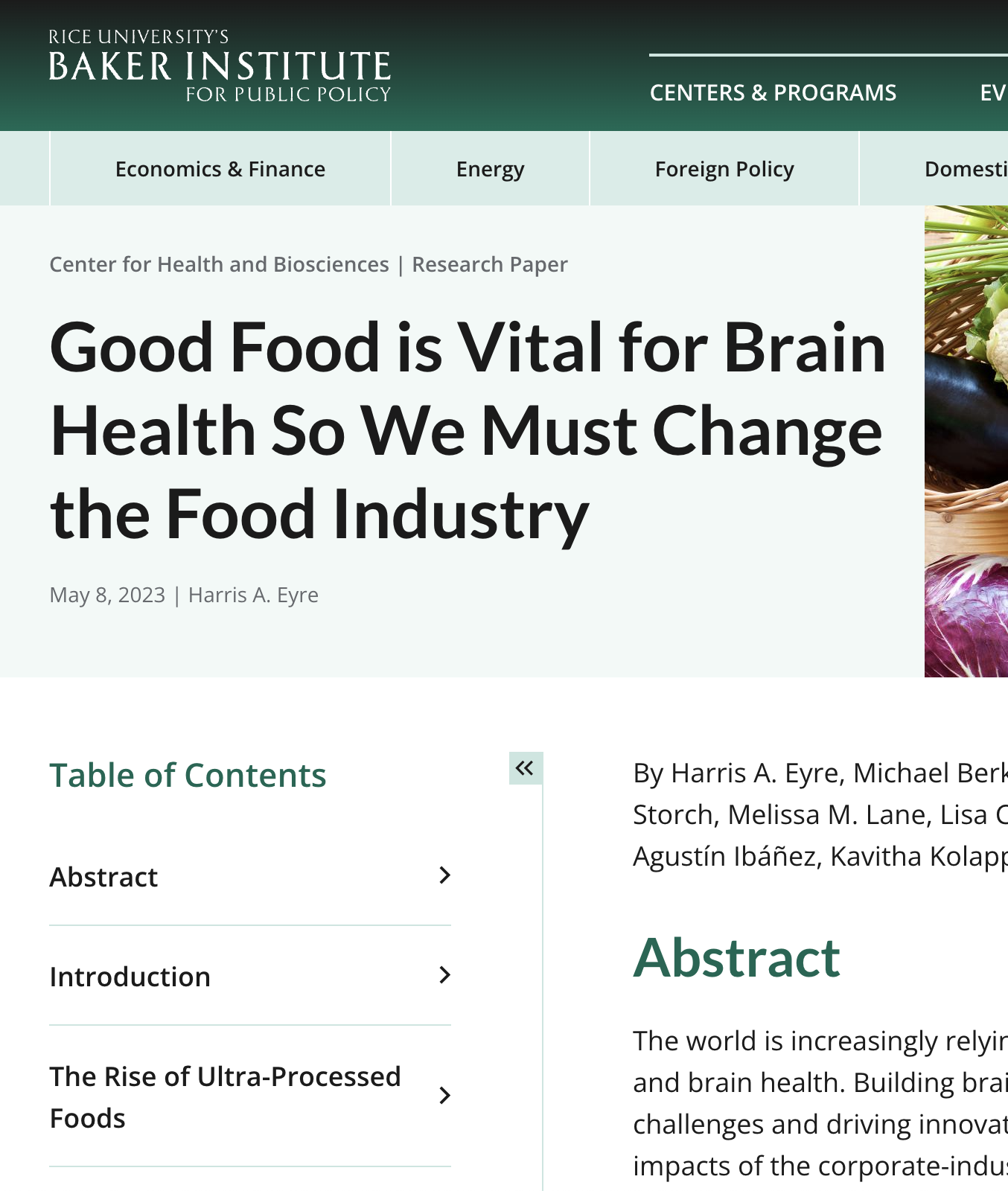The world is increasingly relying on “brain capital,” where a premium is put on brain skills and brain health. Building brain capital is fundamental for meeting modern societal challenges and driving innovation. It also provides a framing to understand the negative impacts of the corporate-industrial food industry on our communities and offers insights as to how to mitigate them. In this paper, we argue that today’s food environments and food systems around the world are dominated by the corporate-industrial food industry, and that this is undermining brain capital and therefore sustainable human development and public health on a global scale. Respecting the intertwined relationships between brain capital, health, and sustainable environments is essential for the future of humanity.
This paper outlines a range of policy recommendations to reform the corporate-industrial food industry in the interest of protecting brain capital. Recommendations span from transforming the food system through public policy and reforming clinical care, to defending against misinformation driven by the food industry, engaging the brain health field in a “Global Plastics Treaty,” and converging planetary and brain health. The most impactful solutions to build brain capital at scale do not lie at the level of the individual or health services, but in public policy. These solutions have the capacity to directly address a major driver of the many non-communicable conditions — both physical and mental — that are major health burdens globally. In addition, tackling the corporate-industrial food industry will also optimize planetary health, which is essential to human longevity and well-being.
The paper has been published by the Rice University’s Baker Institute for Public Policy: https://www.bakerinstitute.org/research/good-food-vital-brain-health-so-we-must-change-food-industry
Authors: Harris A. Eyre, Michael Berk, Rym Ayadi, Sarah Dunlop, Suzanne L. Dickson, Eric A. Storch, Melissa M. Lane, Lisa C. Brown, Kelly O’Brien, Mohamed Salama, Erin Smith, Ha Le, Agustín Ibáñez, Kavitha Kolappa, Jo-An Occhipinti, and Felice Jacka

